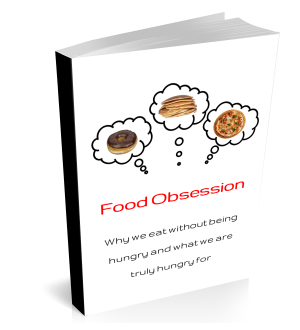Do you struggle with losing weight despite cutting calories?
Are you unable to maintain weight loss?
Do you even gain a few extra pounds extra after each diet?
Maybe metabolic damage is the culprit...and you are doomed to diet for your entire life if you want to maintain weight loss.
Does metabolic damage really exist?
To answer this question, the Bayesian Bodybuilding Research Team, which I am a part of, spent months digging through research literature and analysing research studies on weight loss and regain. Our research review was published in December 2016. In this blog post, I am going to present to you our key findings and give you useful tips on what to do to stay lean after a weight loss diet.
What is metabolic damage?
Metabolic damage is permanent metabolic slowing after dieting. When you start eating less, your metabolism slows down. Thus, your resting metabolic rate (RMR) decreases because your body doesn’t expend as much energy for all the basal tasks you need to live, such as making the heart beat, for example.
Our research question was:
Does this metabolic slowing persist after you stop dieting and increase your energy intake?
If this is the case, it would be devastating, because if your energy expenditure stays low after dieting, but you increase your food intake to pre-dieting levels, then you will regain all the weight you lost.
Our Findings:
A big part of our study was devoted to the Minnesota experiment. The data from the Minnesota experiment was used in the past as a support for the metabolic damage hypothesis. In this experiment, 32 normal-weight, young men were put on a drastic weight loss diet for 24 weeks (It’s half a year!!!). Their target was to lose 1 kg (2.2 lbs) per week. That’s a lot! Their average body fat level at the end of the diet period was 5%. That’s the body fat level hard-core bodybuilders reach when they compete. However, in contrast to bodybuilders, the participants of the Minnesota study didn’t have much muscle mass to start with. For this reason, they looked like this by the end of their diet.
Time Life
Afterwards, the participants were refed under controlled conditions to examine which refeeding strategy is the best after a prolonged semi-starvation period. They underwent a 12-week controlled recovery period, during which they received a prescribed diet. Afterward, some of them, who decided to stay in the facility for additional 8 weeks, transitioned to ad libitum energy intake (meaning they could eat as much as they wanted). During this period the researchers recorded precisely how much each of them ate.
Comparison of basal metabolism before starvation and after refeeding
Previous studies haven’t considered the entire recovery period; they examined only the 12-week controlled recovery. We analysed the entire recovery period of 20 weeks and we found no sign of metabolic damage. We compared subjects' basal metabolism (RMR in relation to each subject’s fat free mass and fat mass) before and after starvation. We used three different RMR prediction equations to obtain precise predictions. We compared the predicted RMR values with the RMR value that was actually measured for each subject. Our results showed that subjects’ metabolism – body composition related RMR - was either the same or even higher after starvation (as I mentioned, we have done this analysis 3 times with different equations).
Energy intake influences metabolism recovery
Another important point was that the subjects were divided into four groups during the recovery period. Each group received a diet with a different energy content. The lowest energy group had a diet with a slight surplus of a few hundred kilocalories more than they needed to maintain their starved bodies. The highest calorie group had a daily energy intake of over 1500 kcal more than they needed to maintain their weight at the end of the starvation period.
The rate of lean body mass gain (aka muscle gain) was the same between all the 4 groups. This makes sense because the guys didn’t even lift. Why should the subjects in the higher calorie groups use the additional energy to build an excessive amount of muscle?
The subjects that were in the highest calorie group gained significantly more weight (59% weight recovery) - thus more fat as muscle gain was about the same in all groups - compared to the lower calorie groups (30% weight recovery). The participants who ate more, gained more fat. It’s that simple.
This table shows subjects' recovery levels during the 12-week controlled recovery period. 'Energy intake for 12 weeks' represents the sum of calories each subject consumed in the 12-week recovery period. The percentage recovery is related to the weight, lean body mass or metabolism change from baseline until the end of the starvation period ( [value after 12 weeks recovery - value at the end of starvation] x 100 / [pre-dieting value - value at the end of starvation] ).
The metabolism recovered in relation to energy intake. The groups that ate more had a higher RMR increase. An interesting fact we found was that the lowest energy group had a significantly higher metabolism (body composition related RMR) in the recovery period than in the starvation period. Also, the actual RMR value showed a trend towards higher values, despite the fact that subjects’ body composition was less favourable during the recovery period than during the starvation period (their lean body mass was significantly lower).
Why? Because they ate more!
Important point: Energy intake influences the resting metabolic rate.
Previous researchers who ignored the fact that the subjects were divided into groups receiving diets with a significantly different energy content concluded that RMR recovers in relation to the degree of FM recovery, without being influenced by the higher metabolically active fat free mass. In other words, only after you regain all the fat you lost will metabolic slowing stop.
Our findings sharply contradict this statement showing that metabolic slowing is a result of an energy deficit and is reversible by an increase in energy intake. Post-diet fat gain is not the result of a suppressed metabolism, but overeating.
When you are in a calorie restricted state, your body slows down and expends less energy. When you increase your calorie intake and start eating more, your body starts expending more energy.
Evidence from other studies
The Minnesota experiment wasn’t the only study we looked at. We also examined studies on malnourished individuals and anorexia nervosa patients. We found that even in such a drastic, chronically undernourished state, the basal metabolism of the participants corresponded to their body composition. RMR was low, but it was low because subjects’ body mass was low. Another interesting point is that some studies showed that during refeeding of anorectic patients their RMR increased more than predicted based on their body composition. This means that they actually wasted the energy instead of saving it as fat.
All the cases I have described up to now are very extreme. What about ‘normal weight loss dieting’ or the type of dieting bodybuilders do to get shredded?
We also analysed studies that are more relevant for real-life strength athletes, or just for those of you who want to get super lean and crazy shredded.
We have seen the same trend analysing literature on bodybuilders and other weight class athletes: in caloric restriction, like preparation for a competition, RMR decreases. However, after the competition, when the athletes started eating more to return to their initial body weight, their basal metabolisms also increased.
Take-home message
# 1 Body composition is the most important factor that determines how much energy you expend.
# 2 Acute changes in energy intake – such as eating less or eating more – can decrease or increase your RMR. But then, within one to three days after you stop dieting and return to your maintenance energy intake, your basal metabolic rate will also increase. The human metabolism is flexible and adjusts to changing conditions quickly.
Based on the current evidence: metabolic damage doesn’t exist!
Want to recap? Watch my video on metabolic damage
and read the article on the Bayesian Bodybuilding page.
Follow me on instagram for more content.
What to do if you can’t lose weight or maintain weight loss
By now it should be clear that if you can’t lose weight, it’s not because of metabolic damage. In most cases, poor diet compliance causes weight loss plateaus. Based on my calculations only one 'cheat meal' with an energy content of about 1,500 kcal, may ruin most of the weight loss progress you make in one week. Be honest with yourself and how strict you are with your diet. Also, if you think that you can’t see weight loss on scale because you retain water, it’s most likely not the case. The guys in the Minnesota experiment retained water, but I really doubt that your diet is as drastic as and as long as their semi-starvation was and that you are as ‘starved’ as they were. If so, stop dieting and start putting weight back on.
Another potential reason why you can't lose weight is, because you don’t know how much you should eat, how to plan your diet, or what food to eat to hit your macros. Most people struggle to get sufficient protein without excessive calorie and carbohydrate intake, which prevents them from losing weight. For delicious, protein packed, satiating and satisfying meals and an easy 3-Step Fat Loss Plan check out my Vegan Bodybuilding & Fat Loss Cookbook or get Science Bakes Protein Pancakes and Waffles Mix with whooping 30 grams of protein per serving.
How to maintain the lost weight
If you have reached your weight loss goal and want to maintain your current body weight, increase your calorie intake, so that it corresponds to your current body composition. You could use an online calculator to predict your maintenance energy intake. Go from there and adjust calories if necessary. If you keep losing weight, add more calories to your diet. If you start gaining weight (beyond the first day gains that come from increased food volume in your digestive system and/or increased glycogen stores), reduce your energy intake slightly.
Should I reverse diet?
There is no need to reverse diet. Reverse dieting may be a more careful approach to find where your new maintenance is, but it is also a more painful approach that is not really necessary.
The most important thing is: don’t binge and don’t overeat! Just because you reached your target weight doesn't mean that you can eat whatever you want.
If you struggle with emotional eating, overeating and binge eating, if you eat without being hungry and use food to numb negative emotions, to relax, to disconnect from the world or to get reward or positive feelings you don’t get in your everyday life, you need to address this problem on a deeper, psychological level. Check out my book “Food Obsession - Why we eat without being hungry and what we are truly hungry for”.
I am sure it will help you!
The next time someone offers you advice on how to repair your metabolism after dieting, just ask the dude: Do you even science?


















